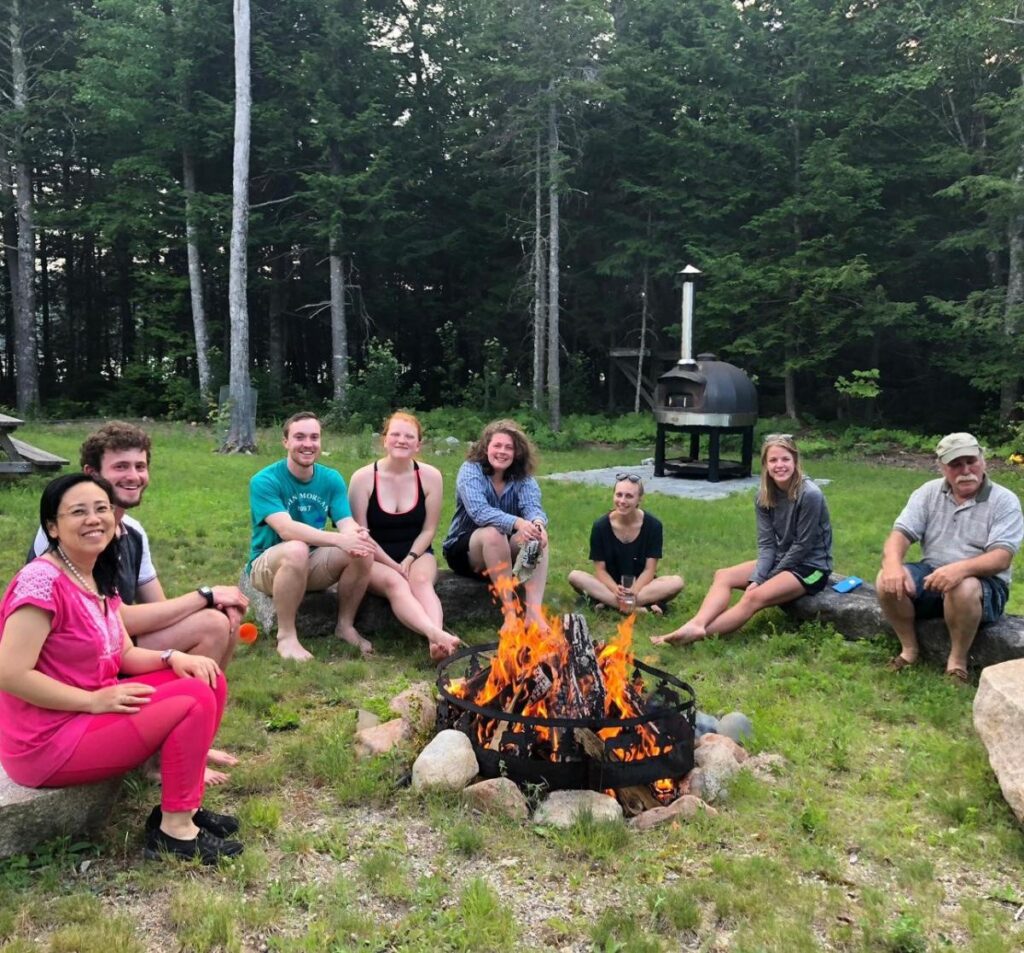Applications to the 2022
Summer Institute are Now Closed.
The ALPINE Summer Institute program is designed for up to 12 students and young professionals to learn more about the theory and practice of large landscape conservation in the early twenty-first century. The program is staffed by experts in the field of land conservation from the Lincoln Institute, the Harvard Forest, Highstead, and the Schoodic Institute.

Undergraduate and graduate students, as well as young professionals with a wide variety of academic backgrounds and levels of experience, are eligible to apply for the program. The Institute is designed for those who are interested in getting in-depth exposure to the practice of large landscape conservation in New England. Previous participants have come from a range of public and private colleges and universities as well as large and small conservation organizations. No New England residency or affiliation with a New England college, university, or conservation organization is required.
The ALPINE Summer Institute encourages participants to consider how land conservation might become a significant focus of their professional careers and volunteer commitments over the course of their lives. The program also offers participants the opportunity to meet and network with peers and leaders in the field.
The program has been held both in-person and remotely, depending on recommendations by public health officials. In either case, program costs and in-person meal and accommodation costs are free of charge to all participants.

The Summer Institute typically includes:
- Two intensive weekends with assignments completed in the interim
- Presentations by leaders and practitioners in land conservation and in organizations such as the Harvard Forest, the International Land Conservation Network, the Maine Coast Heritage Trust, and the Lincoln Institute of Land Policy
- Writing assignments and reflections
- Leadership training exercises
- Networking opportunities
Applicant Requirements
The ALPINE Summer Institute seeks undergraduates, graduate students, and young professionals with a wide variety of academic backgrounds and levels of experience, who are interested in learning more about conservation in New England and becoming a member of the next generation of land conservation leaders. Previous participants have come from a range of public and private colleges and universities, and applicants need not attend an institution in New England or be from the region.
Application Process:
Enrollment for the 2022 ALPINE Summer Institute is now open. The deadline to apply is April 1. This program, which will include once-a-week virtual sessions between early June and early August next summer, will also feature a face-to-face meeting at the Schoodic Institute in Winter Harbor, Maine from June 24 to 26, 2022 (depending on favorable public health conditions).
In order to apply, candidates will complete the application online submit a resume and provide a reference. Admission will be determined on a rolling basis by the April 1 deadline. The number of participants is limited, so we encourage interested individuals to apply as soon as possible. Candidates will be chosen based on:
- Interest in the field of land conservation and the potential to make a significant contribution to land protection efforts in the US and the world
- Demonstrated capacity to benefit from the ALPINE Summer Institute.
For more information on the ALPINE Summer Institute, please contact Robin Austin, Lincoln Institute Project Coordinator of Land Conservation, at raustin@lincolninst.edu, or Jim Levitt, ALPINE Program Director, at jlevitt@lincolninst.edu. Additional information on the course through the University of Massachusetts University Without Walls and applying for academic credit associated with participation in the ALPINE Summer Institute can be found here. Please note that for academic credit, there will be a separate application form to be submitted to the University of Massachusetts Amherst. There will also be a separate fee charged by the University of Massachusetts associated with such credits.
What Participants Are Saying:
“The ALPINE Summer Institute inspired me to think critically and act intentionally in all aspects of my work in the conservation field. My participation reinforced my passion for conservation, and confirmed my decision to pursue a career in this work. I couldn’t imagine doing anything more meaningful.”
Shea Flanagan, Dartmouth College
“Without the Summer Institute, I am not sure that I would have had the space or inspiration to articulate these ideas as clearly. The Summer Institute helped me articulate not only the fact that I care about land, but also the reasons why I care about land.”
Katie Michaels, Middlebury College
“Through ALPINE, I have been able to make numerous connections in the field of land conservation that I would otherwise not have. I was also able to enhance my understanding of land conservation while being surrounded by similar peers.”
Matt Brewer, University of Maine
“Between my studies at Middlebury College, my work at The Nature Conservancy, and my participation in the ALPINE Summer Institute, I have seen again and again how important it is to take a multi-disciplinary approach to conservation that focuses on creative and collaborative solutions based upon a place’s unique history, culture, socioeconomics, and particular environmental landscape.”
Caroline Colan, Middlebury College
“I knew I wanted to get into conservation as a career before coming to the ALPINE program, but I think my ideas about what that really meant were vague. I now have a clearer picture of what conservationists are, and we are not all crazy people tied to trees, or research scientists trapped in labs.”
Amanda Bunce, University of Connecticut

